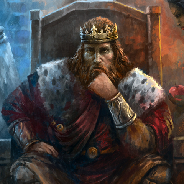So I played Hearts of Iron 3 and Factorio, both games having “supply routes” of some kind.
In HoI3, soldiers only fight with full efficacy if they’re regularly given ‘Supplies’, a resource. There’s also “Fuel” which is needed for tanks and airplanes to function.
This means that in HoI3, you can effectively surround, and siege, units of soldiers. By surrounding a unit, they lose supplies and then fight at half (or worse) efficacy. It also does morale damage and other stacking penalties.
Factorio isn’t a real RTS, but it is much more granular on the supply route. It has a tower-defense like game vs the Biters. Every gun that fires in Factorio requires resources for that gun to fire.
As such: you think about where to place supplies. Or in Factorio terms: bullet magazines, rockets, electricity (if using lasers), Grenades, solid fuel or coal (depending on how you run your vehicles), etc. etc.
I guess I’m looking at an RTS game that has these elements. I feel like “supplies” is one of the most fundamental strategies in the real world, but only is covered by a minority of games. Units in Starcraft or AoE2 just perform at full strength no matter what. No consideration of food or arrows (IIRC: Medieval Archers only entered battle with ~6 arrows IIRC. If they needed more, you needed a cart somewhere with additional arrows).
And slingers of history were well known to be able to march in the day, while crafting sling bullets at night (local rocks and clay could be used to create sling bullets, allowing slingers to self-sufficiently create their supplies). Its one of the reasons why slingers were used for so long in practice, because Arrows take far more skill to craft than sling-bullets. Even though the Bow-and-Arrow was a superior weapon, the sling continued to be used for centuries for its ease-of-supplying.
A game that handles these kind of supply issues or supply considerations would be great. Too many supplies just “teleport” to units where and whenever needed.
Bonus points to Armored Brigade. While there’s no “resupply” mechanic, there’s very careful consideration on the amount of bullets a typical unit carries, and every bullet is tracked by the game. When you run out of shots, the unit basically is useless.
Foxhole has supply routes, but it’s not a grand strategy game. You only control one soldier.
Call to arms/ men of war assault squad. Both track individual rounds, gas, and grenades for each unit and you can field repair tanks and other equipment.
The only down sides are that the games get really micro heavy if you go a long time with units, and some field repairs seem a bit Farfetched. But otherwise still a great game series to try for that kind of stuff you’re looking for.
There’s also the war gaming genra you could try out tank warfare Tunisia 1943, which is probably the closest you’ll get to commanding a platoon in WW2. The developers are called graviteam and they do have other games called graviteam tactics (usually a WW2 operation name) but I will warn you that the UI is eastern Euro Jank that’s hard to learn and will probably take 1 hour of YouTube tutorials. Tank warfare is probably the best from the UI perspective but still is pretty bad.
The war gaming genra is kinda rts, and the supply systems in those games are equally in-depth
Looks like Tank Warfare Tunisia 1943 has bonus points with Graviteam being a Ukrainian developer. Very interesting. Its not quite an RTS, but yeah, war-gaming is closely related and I’m more than willing to check that out.
I will warn you that the UI is eastern Euro Jank
Well, so was Factorio, lol. I can’t say I played too much European Euro Jank UIs, but I’m more than willing to put forth some degree of effort.
A bit abstracted, but Rise of Nations does consider supply and it is quite dramatic. Inside your (or allied) territory supply rules don’t apply, but in enemy territory your units take attrition damage (based on enemy tech) and artillery suffers a big debuff to fire rate (up to 50%). To counter that, you need to bring supply wagons (trucks in later eras) with your army - they project an aura that counters the “out of support” effects.


